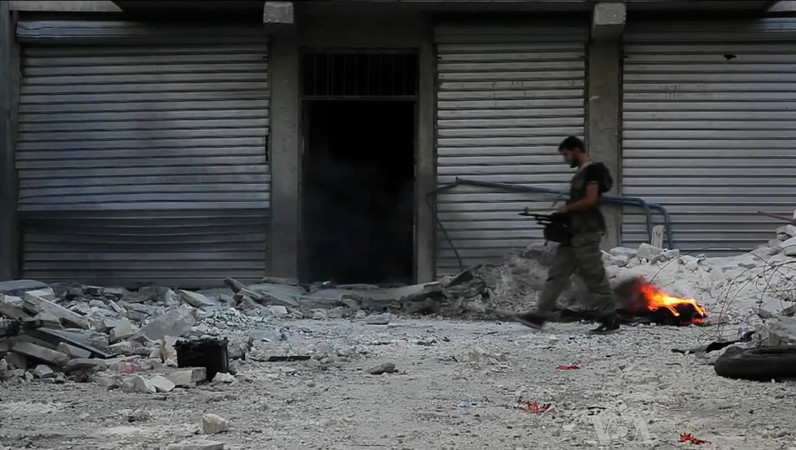Press Release: Senior Coroner Has Ruled That Hermitage Capital is an ‘Interested Person’ in the Perepilichnyy Inquest in Surrey
Press Release
For Immediate Distribution
Senior Coroner Has Ruled That Hermitage Capital is an ‘Interested Person’ in the Perepilichnyy Inquest in Surrey
6 August 2015 – Today, the Senior Coroner ruled that Hermitage Capital will be recognized as aninterested person in the Alexander Perepilichnyy inquest which took place in Surrey, England today. Hermitage Capital made the application because of specific facts which pointed to the possibilitythat Alexander Perepilichnyy was murdered in November 2012 in Surrey.
Hermitage Capital was forced to intervene in the coroners inquest because the Surrey police decided that Alexander Perepilichnyy’s death was ‘not suspicious’ and ‘did not involve third parties’. In written and oral applications submitted by Geoffrey Robertson QC and Henrietta Hill QC, Hermitage disclosed how Alexander Perepilichnyy had described fears over being murdered by members of the Russian organised crime connected to the Russian government.
“We cannot allow the Russian government to get away with murder in the UK. We will make sure that all the facts surrounding Alexander Perepilichnyy’s death, including any suggestion that it was linked with his involement in exposing the Russian organised crime connected to the Magnitsky case are elucidated in full at the inquest,” said William Browder, leader of Justice for Sergei MagnitskyCampaign.
In 2010, Alexander Perepilichnyy provided evidence to Hermitage Capital which lead to the freezing of accounts belonging to Vladlen Stepanov, husband of a senior Russian tax official held in Swiss banks. He twice testified to the Swiss prosecutors and subsequently received death threats by various elements inside the Russian government.
Alexander Perepilichnyy died on 10 November 2012 after returning from a trip to Paris. The British police closed the case but the French authorities have since opened a full murder investigation.
For more information, please contact:
Justice for Sergei Magnitsky campaign
+44 207 440 1777
The Robert H. Jackson Center- Industrialized Killing: Accountability and Justice for Syria
SNHR: Violations Against Media Activists During July 2015
Lawmakers Demand Full Report Following State Department Human Trafficking Decision
By Samuel Miller
Impunity Watch Reporter, North America and Oceania
WASHINGTON, D.C., United States of America — U.S. lawmakers expressed concern Tuesday about whether the State Department’s annual global report on human trafficking may have been watered down due to political considerations and vowed to demand a full accounting at a Senate hearing this week. Last week, the U.S. State Department gave Malaysia, Cuba and Saudi Arabia upgrades from the lowest tier in its annual report on modern slavery.

The State Department denied that the country-by-country ratings in the latest report had been politicized.
A Reuters examination, based on interviews with more than a dozen sources in Washington and foreign capitals, showed that the State Department was pressured into inflating assessments of 14 countries in this year’s report. Analysts in the anti-trafficking office disagreed with U.S. diplomatic bureaus on ratings for 17 countries, the sources said.
The annual report examines 188 governments for their performance in the previous year in fighting exploitation, whether for sex, domestic labor, or work — from construction and fishing to farming and mining. Saudi Arabia, Cuba, and Malaysia were moved from Tier Three to Tier Two on the U.S. list of offenders because of their efforts to improve, according to the annual report on human trafficking.
The analysts, who are specialists in assessing efforts to combat modern slavery, won only three of those disputes, the worst ratio in the 15-year history of the unit. Among the countries that received higher rankings than recommended by the Office to Monitor and Combat Trafficking in Persons were Malaysia, Cuba, China, India, Uzbekistan and Mexico.
Human rights groups called for an investigation into why strategically important countries such as Malaysia, China, Mexico and Cuba were upgraded from the list of worst offenders in human trafficking.
With regard to Cuba, US Under Secretary of State for Civilian Security, Democracy, and Human Rights Sarah Sewall said Cuba had made progress in combating sex trafficking. But she said concerns remained over the country’s failures to address forced labor.
“The Government of Cuba does not fully comply with the minimum standards for the elimination of trafficking; however, it is making significant efforts to do so.” reads the report. The report uses the same language for its assessment of Malaysia.
The US also decided to remove Malaysia from the list of countries failing to address human trafficking, a decision criticized by human rights groups. Critics have noted the importance of Malaysia’s participation in the Trans-Pacific Partnership as a possible political factor which may have had influence over the State Department’s decision.
Senator Robert Menendez (D-NJ) and 18 Senate colleagues wrote Secretary of State John Kerry this month opposing an upgrade in ranking.
“The administration has turned its back on the victims of trafficking, turned a blind eye to the facts, and ignored the calls from Congress, leading human rights advocates, and Malaysian government officials to preserve the integrity of this important report,” Menendez said in an e-mailed statement Monday. “They have elevated politics over the most basic principles of human rights.”
For more information, please see:
Reuters — Lawmakers to demand full accounting on human trafficking report – 4 August 2015
BBC News — Cuba removed from US human trafficking list – 27 July 2015
Bloomberg — U.S. Upgrades Malaysia, Cuba in Human Trafficking Report – 27 July 2015
Politico — U.S.-Cuba relations get another upgrade – 27 July 2015
USA Today — Malaysia, Cuba upgraded on human trafficking report – 27 July 2015
Washington Post — U.S. drops Cuba and Malaysia from human trafficking blacklist – 27 July 2015

